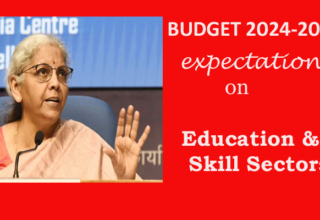
Apart from protecting themselves from online frauds, students must become well-informed on user charges, reward/cashback gimmicks and being tricked into impulsive spending. Using regulated apps offering customer support is a nice idea
By Abhinit Singh, Founder, Ready Accountant
 In today’s fast-paced digital world, managing our finances has become as easy as a swipe and a tap. Payment apps have taken center stage, especially among students and young adults, offering a seamless way to handle money and stay on top of expenses. From splitting bills with friends to tracking budgets and even exploring investment options, these apps have become indispensable for tech-savvy students. But in this exciting digital landscape, it’s essential not to overlook the regulations and risks that come with using payment apps to keep our finances safe and secure.
In today’s fast-paced digital world, managing our finances has become as easy as a swipe and a tap. Payment apps have taken center stage, especially among students and young adults, offering a seamless way to handle money and stay on top of expenses. From splitting bills with friends to tracking budgets and even exploring investment options, these apps have become indispensable for tech-savvy students. But in this exciting digital landscape, it’s essential not to overlook the regulations and risks that come with using payment apps to keep our finances safe and secure.
UPI has completely transformed the way we handle transactions, making them faster, more convenient, and accessible to all. With just a few taps on our smartphones, we can transfer money, pay bills, shop online, and even make investments. What sets UPI apart is its simplicity and interoperability, allowing users to transact seamlessly across different banks and payment apps.
In FY22, UPI accounted for 52 percent of the total 8,840 crore financial digital transactions with a total value of Rs 126 lakh crore, the government noted in its pre-Budget Economic Survey. In FY19 (2018-19), UPI accounted only for about 17 percent of the country’s total 3,100 crore digital transactions, the Economic Survey noted.
Gone are the days of writing checks or carrying bundles of cash. Payment apps have revolutionized the way students handle money. With just a few taps on their smartphones, students can effortlessly pay for goods and services, split expenses with friends, and take charge of their budgets. It’s no wonder these apps are so popular among the student population. However, amidst the convenience, students must remain cautious of online frauds that are becoming increasingly prevalent.
Security is a top concern when using payment apps. While reputable platforms employ robust security measures, no system is entirely foolproof. Data breaches, hacking attempts, and unauthorized access to accounts can still happen. To safeguard their personal information, students should follow best practices such as using strong passwords, enabling two-factor authentication, and avoiding public Wi-Fi when conducting transactions.
Knowing the regulations that govern payment apps is equally important. Depending on the country or region, these apps may be subject to financial regulatory authorities. Opting for regulated apps ensures protection for users’ funds and data. In case of any disputes, students have more security and support when using regulated platforms.
Some payment apps offer investment features, tempting students to grow their money. While the idea of multiplying funds might be enticing, it’s crucial to understand the risks involved. Investments are subject to market fluctuations, and returns are never guaranteed. Students should research investment options carefully, consider their risk tolerance, and seek advice from financial experts if needed.
Let’s not forget about the fees associated with using payment apps. While essential services may be accessible on many platforms, some transactions or premium features may come with a cost. Understanding these fees is essential for making informed financial decisions that align with individual needs.
Moreover, some payment apps may tempt users to link their accounts to credit cards or offer lines of credit. This convenience can quickly lead to impulsive spending and debt accumulation. To avoid falling into financial pitfalls, students should exercise discipline and only link accounts to credit options they can manage responsibly.
As competition intensifies, payment apps often entice users with rewards and cashback offers. While these deals can be appealing, it’s essential not to let them drive financial decisions. Responsible spending and budgeting should always take priority over chasing rewards.
Another crucial factor to consider is customer support. When issues arise, students need reliable and prompt customer service to resolve problems efficiently. Reading reviews and checking app ratings can help gauge the quality of customer support before committing to an app.
To sum it up, payment apps have brought immense convenience to managing finances for students. However, it’s essential to approach them with awareness and caution. By understanding the regulations and risks involved, students can maximize the benefits while protecting their financial well-being. Embracing these digital tools with responsibility will undoubtedly lead to a more secure and fulfilling financial journey for every student. So, tap wisely and make the most of the digital age while staying financially savvy!










